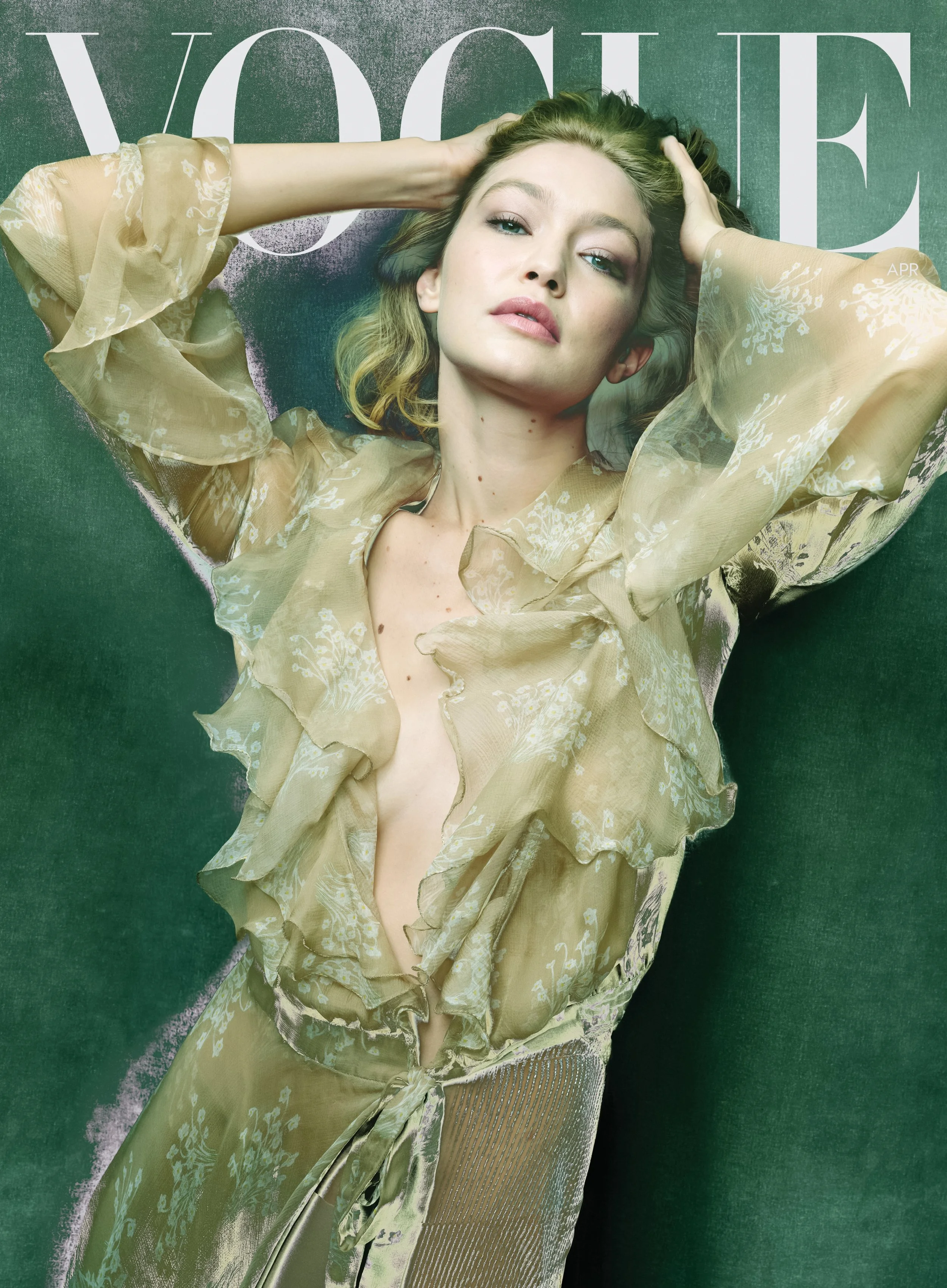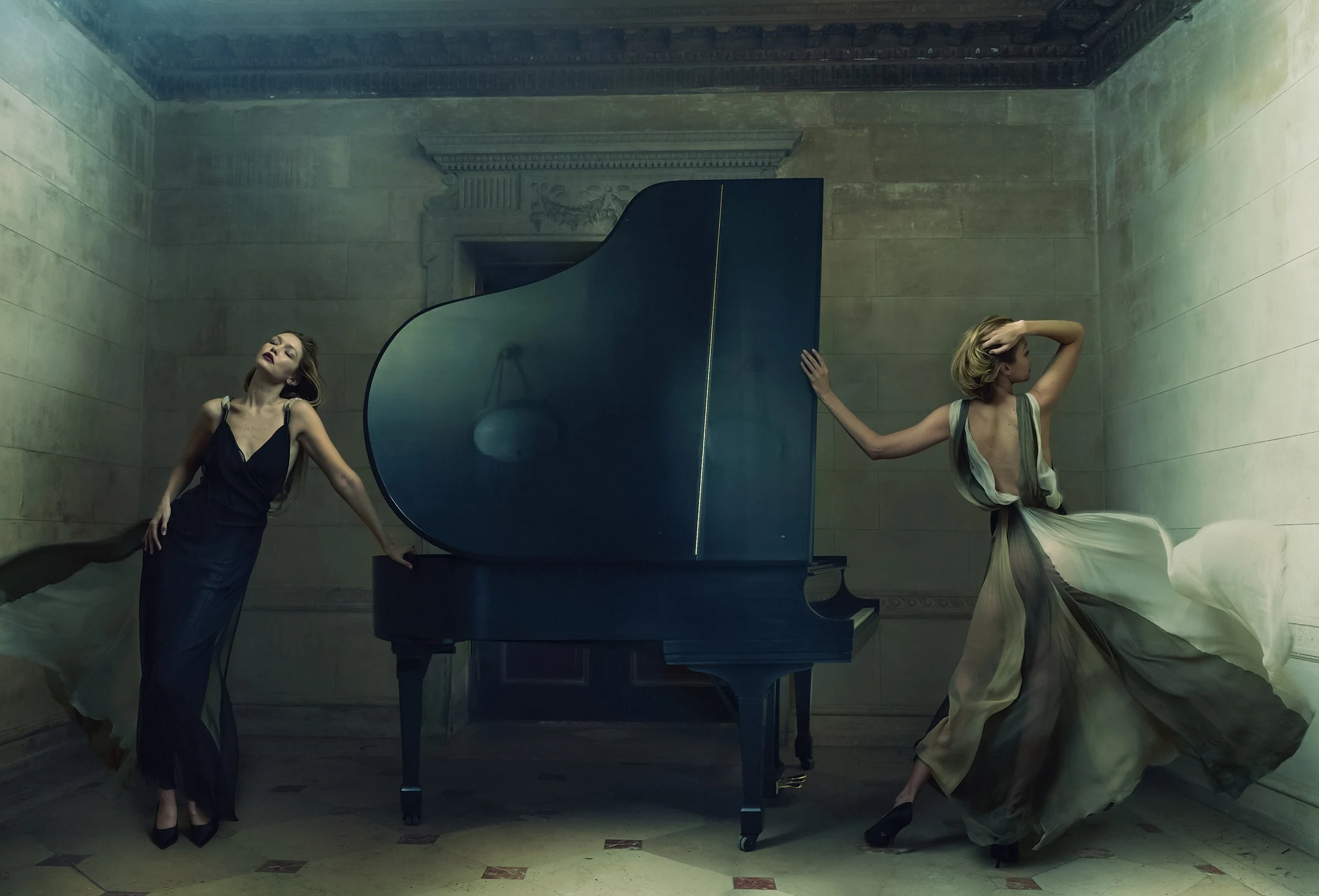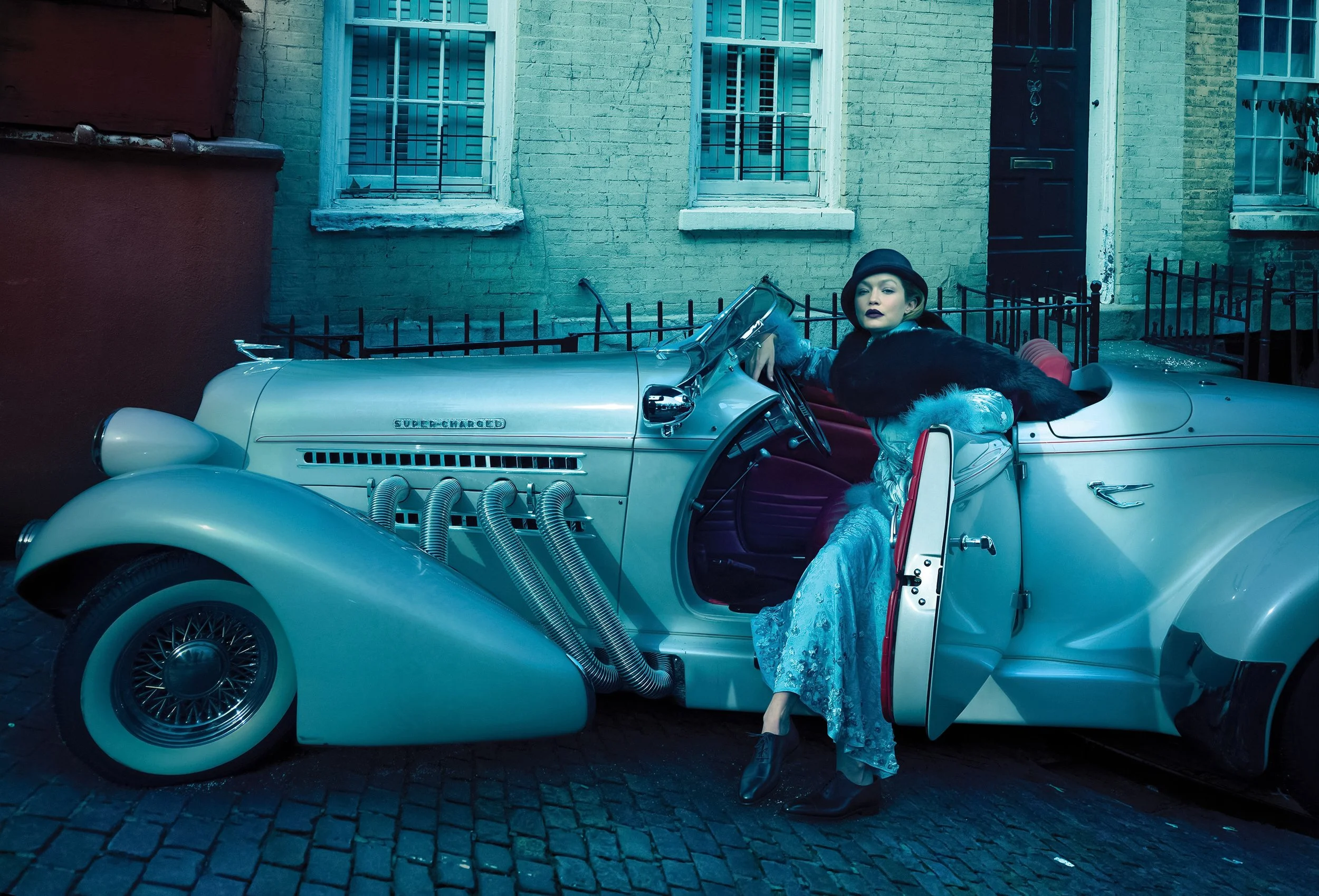Gigi Hadid Covers Vogue April, Inspiring a Jazz Age Dive into the Harlem Renaissance
/Gigi Hadid Covers Vogue April, Inspiring a Jazz Age Dive into the Harlem Renaissance AOC Fashion
Supermodel Gigi Hadid graces the cover of American Vogue’s April 2025 issue, styled by Alex Harrington in ‘Jazz Age’ inspired, fashion opulence.
Annie Leibovitz [IG] captures ‘The Many Lives of Gigi Hadid’, in the buildup to the 2025 Met Gala’ on Monday, May 5. Joining Hadid in Vogue’s April cover story are British model and activist Neelam Gill & actor Lewis Pullman. / Hair by Orlando Pita; makeup by Francelle Daly
Chloe Schama conducts the interview in Bucks County, PA at Gigi’s getaway — part of a larger family presence in the area — and very close to Carversville. Most of us know the particulars of Gigi’s life, and this gorgeous fashion story resonates with much historical information related to the Jazz Age.
A Fusion of Talent, Creativity and Extraordinary Financial Wealth
The term ‘Renaissance’ is critical because the tapestry of cultural, social and musical evolution that converged in the early 20th century culminating in a period of unprecedented artistic expression in America. As the Great Migration rolled out of the South — and New Orleans, in particular —music was central to its arrival in cities and the introduction of a new and vibrant culture. But like a pebble expertly thrown into a pond, music was but one glorious explosion that impacted American culture, as it skipped across the water’s surface lighting a torch of creativity in many disciplines.
New York City’s Jazz Age Moment
New York City played an instrumental role in the explosion of jazz during the Jazz Age, becoming a pivotal epicenter for this vibrant musical and cultural movement. As the Roaring Twenties unfolded, the city's diverse and dynamic atmosphere was ripe for artistic innovation across all artistic disciplines. Harlem, in particular, emerged as a cultural hub where African American musicians could showcase their talents.
Interracial Collaboration and Patronage
The Harlem Renaissance was a time of rich cultural exchange and collaboration between African American artists and intellectuals and their white counterparts. While it was fundamentally rooted in the celebration of African American culture, the period was also marked by significant interracial interactions, particularly in the realms of art, literature, and music.
Those white counterparts were other artists themselves. And white patrons also played a crucial role in the movement's development by providing financial support and exposure opportunities for Black artists, in particular. Follow link top of page as we dial back 100 years in American history.


